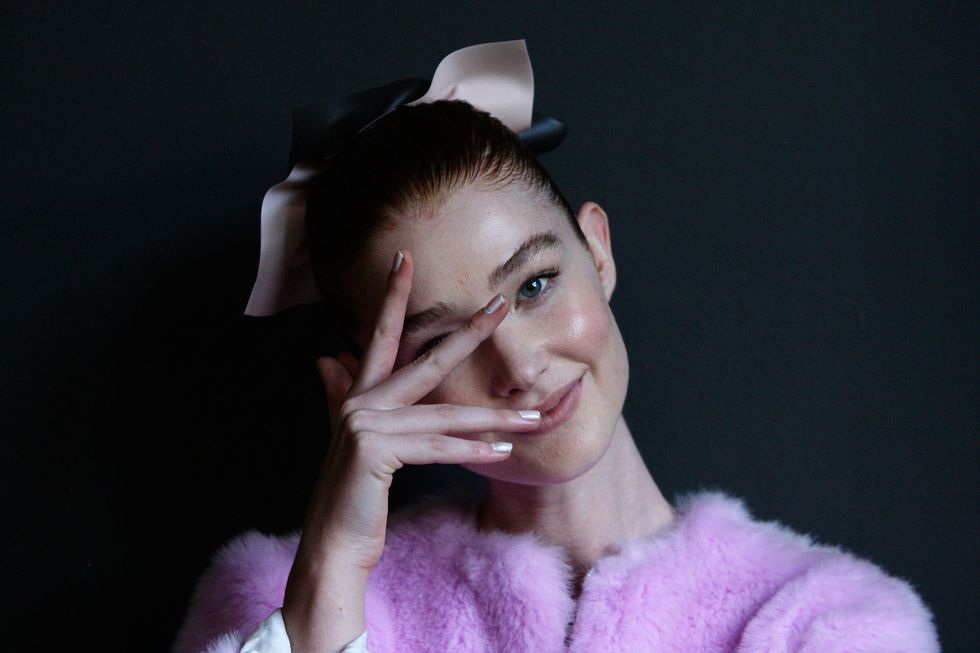Are you happy? How would you even know?
Happiness is an umbrella term we designate to a multitude of things.
Are we happy when we smile? Can real happiness be fleeting or is it does it signify only longterm contentedness? Are joy and happiness the same? Is it a serotonin release or something more metaphysical? Philosophical? Can you be truly happy if it's at the expense of someone else? And can money buy happiness where it fails to serve as Cupid?
To date, Amazon cites about 23 thousand books published in the 'self-help' genre, on the subject of happiness. From Why Are You Not Happy through to The Subtle Art Of Not Giving A F*ck, there are countless tomes claiming to be able to identify happiness and the path to meet it.
And somehow, the concept is still imbued with the sort of unique vagueness that is usually reserved for Gods. The sort of vagueness that is designed to keep it just out of reach of substantive common understanding.
Is the Pursuit of Happiness Unhealthy?
What we do know for sure is that happiness, as a pursuit, has had a massive surge in popularity in the last eight or so years. In 2008, 4,000 books were published on happiness. A mark up of about 2000 per cent from the number published in 2000.
Mindfulness might have taken hold in certain circles, but happiness remains the golden fleece in most people's life-quest.
The problem, though, is that with such a nebulous ideal, most of us tend to err on the side of the less ambiguous.
In so much as happiness is associated with 'feeling good,' we've taken to grasping for anything that we think will give us an identifiably positive feeling, however temporary, which usually means short term highs and rewards.
That doughnut will make me happy.
I could work on that report today, but a piss up in a pub garden with my mates will make me happier, so I'm going to do that instead.
My friend wants me to accompany them to this party, but staying on the couch with a duvet and a movie would make me happier.
In many cases, even the mindfulness craze has made us self-reflective to the point of just plain selfish.
It's wellbeing at it's most hedonistic, it's most self-indulgent.
Happiness Can't Be Selfish Or Immediate
And if we know anything about the pursuit of meaning, or securing longterm emotional wellbeing, it's that it is not characterised by selfishness or or even really by immediate gain.
According to pyschologist Averil Leimon, author of Positive Psychology for Dummies, 'Mindless 'happiness,' especially when it is pleasure based or focussed on immediate gain or materialism has never been promoted by the scientists. Most recent theories would say that you need PERMA happiness for the best sort of life.'
'This could be through the regular experience of positive emotions, such as joy, gratitude or curiosity or through 'engagement' or 'accomplishment', by which I mean using your key strengths on a daily basis and working towards achieving something,' she says.
A sedentary life of movies and doughnuts is probably a no-no then.
But arguably more important than these, Averil explains are, 'Good relationships - because these can immunise you against the very worst of life.'
So, ditching your friend in favour of your sofa might not be so good for your overall wellbeing after all.
Looking for Meaning
Scientists at the Happiness Research Institute (yes, that exists), have found a way to further distill happiness into three categories.
- Life satisfaction - on a macroscale.
- And on the microscale, an everyday that is characterised by positive emotions, although this is a more volatile and inconstant form of happiness.
And then there is a third dimension: a 'eudaimonic' view of happiness.
Eudaimonia was an idea originally floated by ancient Greek philosopher Aristotle and it is actually the antonym for (the opposite of) 'hedonic' or 'hedonism.'
Eudaimonic happiness is characterised by the pursuit of purpose and greater meaning.
So, as Averil Leimon alluded to, short term highs and instant pleasure are vastly overshadowed by the pursuit of things that move you towards some greater goal or allow you to grow, expand, develop and mature.
Money Actually Can Buy Happiness
Can money buy you happiness where it fails in buying love? Well, notionally, it can, so long as it is spent in pursuit of this eudaimonic version of happiness.
In one recently published University of Cambridge study, it was discovered that people who spent more of their money on things that correlated with the growth of their personality types were happier in the long run.
So, for example, if you're outgoing and prone to extraversion, then spending money on experiences and travel, which might help you to expand upon these natural personality traits, was linked with better emotional wellbeing.
For those whose personalities charted high on the 'agreeableness' scale, spending on charities and pets made them happier.
Synthetic Happiness Is Still Happiness
The modern world has been swept up in a game of competitive happiness.
Chasing selfish, immediate satisfaction and giving off the image of a '#blessed' or 'good life' has begun to supersede longerterm wellbeing and meaning.
And social media has only compounded this.
Posting our bikram yoga selfie or our couple's workout on Instagram only makes us smug, not happy in any Aristotlean sense. And being exposed to this barrage of evidence of other people's happiness or moments of #winning, as we know, has a negative impact on our own emotions.
Don't believe me? Here's a study on the effect of regular Facebook scrolling on the development of depression.
When we don't get what we want and we can look around and see that lots of other people have gotten what we wanted, we view whatever we have as inferior.
Interestingly though, we can synthesise happiness. In other words, can create it. And that synthetic happiness can grow to have just as much value as any other kind of happiness.
Harvard psychologist Dan Gilbert explains in his TED Talk: 'The surprising science of happiness,' people who live in a vacuum of choice are actually, very often, happier.
He uses this rather amusing allegory:
'You go out with a guy on a date who picks his nose, you don't go out on another date [with him]. You're married to a guy who picks his nose.. yeah, well he's got a heart of gold so...' it becomes a case of swings and roundabouts.
We're quite good at making happiness for ourselves when presented with a situation that we can't immediately swap out for something else.
Lack of choice and, in many ways, a more modest life, might make us happier because we create the feelings of happiness for ourselves, instead of worrying and deliberating over what the other options might have been.
'Our longings and or worries are both to some degree overblown because we have within us the capacity to manufacture the very commodity that we are constantly chasing when we choose experience,' Dan concludes.
Your Next Steps
As we live in a culture that promotes booze bingeing, competitive wellbeing and constant Insta-posting, it might be hard to see how any of this research can be practically applied.
A few of us might be bold enough to quit Facebook tomorrow and embark on a life of modest philanthropy, but most of us wont.
There are a couple of things you can do to start working on a more comprehensive, long term pursuit of happiness though.
- Stop thinking of happiness in terms of immediate gain. Consider the activities that routinely cause you to experience positive emotions. Things like gratitude and curiosity, rather than indulgence, gluttony or instant gratification.
- Delete the Facebook app from your phone, so you can only look at the desktop version (infrequently) and unfollow the Instagram accounts that most cause you to perceive the shape of your life as inferior.
- Plan some personal goals for yourself, whether it be expanding your skillsset or learning to be more calm and mindful, and devise a way to work steadily towards them.
- Discover your personality type and work do things that play into the aspects of it that are most dominant.
- Develop your relationships. We exist best when we co-exist, meaningfully, with other people.

Natasha Bird is the Former Executive Editor (Digital) of ELLE.


















